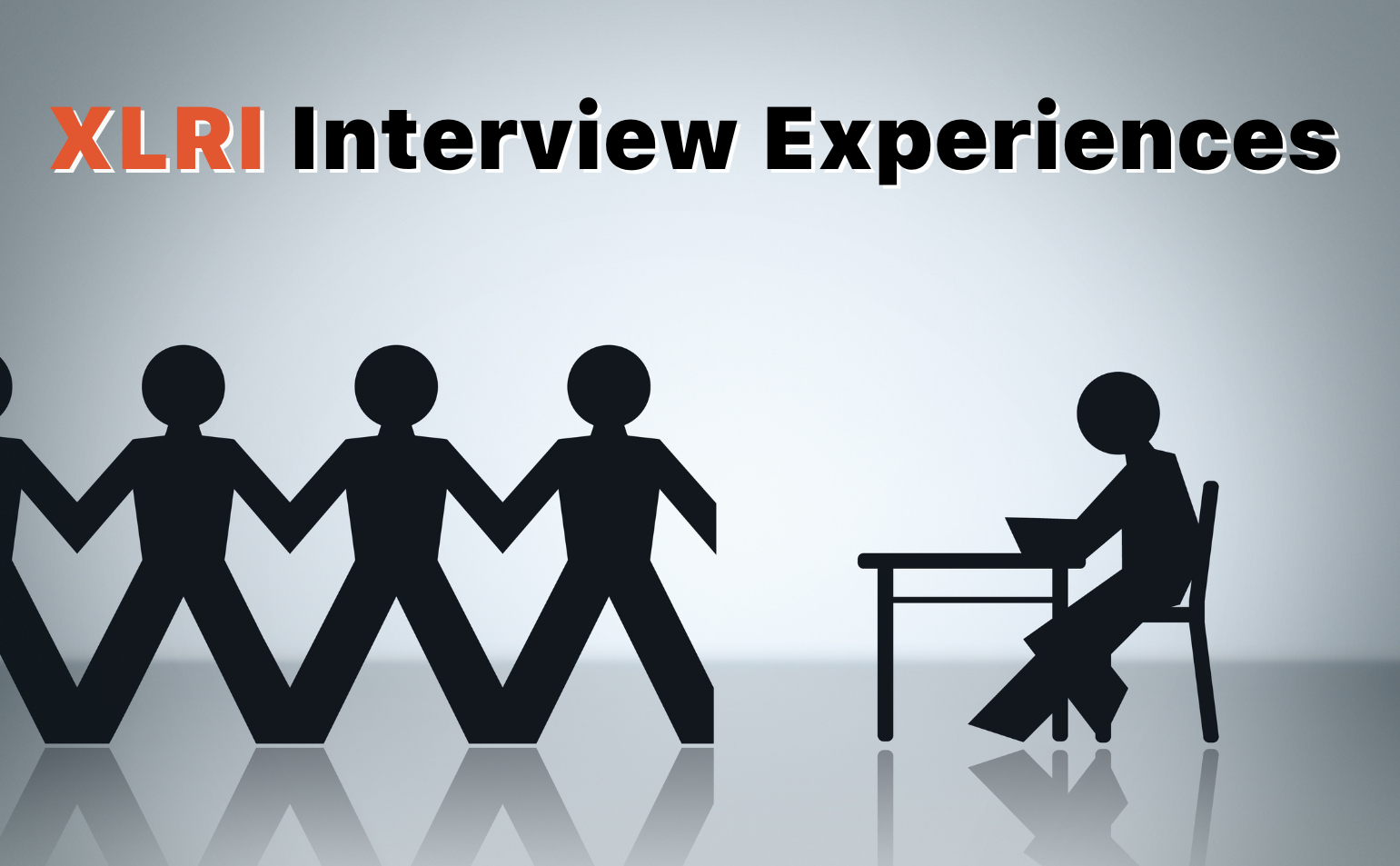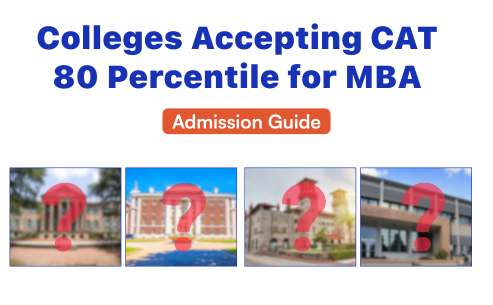Every year, thousands of hopeful MBA aspirants set their sights on gaining admission to XLRI Jamshedpur, one of India’s premier business schools. Renowned for its academic excellence and esteemed alumni network, XLRI is a dream destination for many. But before you can join its prestigious ranks, you must first pass the rigorous XLRI interview process—a daunting but achievable task.
In this comprehensive guide, we aim to demystify the XLRI interview experience. Whether you are a prospective applicant or an MBA student keen on understanding what lies ahead, this post will equip you with valuable insights, practical tips, and strategies for preparation.
You’ll discover the nuances of the process, common questions to expect, and how to make an unforgettable impression on your panel. Ready to take the plunge? Let’s get started!
“Tarkashastra made my MBA CET registration seamless with their guidance and resources at every step.”
Join our classes today.
Add Your Heading Text Here
Understanding the XLRI Interview Process
XLRI’s selection process traditionally involved a written ability test, group discussion, and personal interview. Currently, the interview is the sole determinant for selection after the Xavier Aptitude Test (XAT) scores are considered. The interview panel typically comprises three experienced professionals who assess your suitability for the program. They evaluate not just your knowledge but also your attitude and skills, gauging your ability to handle the program’s demands.
Expect 20-25 minutes of engaging conversation, with potential cross-questioning. Preparation is key. Being familiar with the format and expectations will give you the confidence to tackle anything the panel throws your way.
The Importance of XAT Scores
Before you reach the interview stage, it’s important to ace the Xavier Aptitude Test (XAT). A high XAT score is a prerequisite for shortlisting candidates for the XLRI interview. Ensure you dedicate ample time to prepare for the test by practising past papers, taking mock tests, and focusing on weaker areas to improve your overall score.
If you wish to learn about XAT exam 2025, please refer to our comprehensive article: “XAT 2025 – Dates, Registrations, Pattern, Syllabus & much more.”
Personalising Your Interview Preparation
No two XLRI interviews are alike—it’s important to tailor your preparation to reflect your unique background and aspirations. Start by reviewing your application materials and identifying key areas that may pique the panel’s interest. Reflect on your achievements, challenges, and experiences that have shaped your professional and academic trajectory.
Panellists appreciate honesty and authenticity, so be prepared to share genuine insights into your career goals and the reasons you believe XLRI is the right choice for you.
XLRI Interview Questions: A Glimpse into the Experience
The interview panel at XLRI is known to ask a wide range of questions to gauge your personality, goals, academic background, work experience, general awareness, and extracurricular interests. Here’s a glimpse into the types of questions you can expect:
1. Personality Traits & Goals:
- Why do you prefer BM or HRM?
- Why pursue an MBA if you are already working?
- Why should we select you for XLRI?
- What are your post-MBA career goals?
2. Academics & Work Experience:
- Questions related to your academic background, especially your favourite subjects and any relevant projects or internships.
- In-depth questions about your work experience, including your role, responsibilities, challenges faced, and learnings.
- Questions about your industry knowledge and recent developments.
- Technical questions related to your field of study or work.
3. Current Events & General Awareness:
- Questions related to recent events and their impact on business and society.
- Questions about ethical dilemmas and your perspective on them.
- Questions about your understanding of social issues and their relevance.
4. Hobbies & Extra-Curriculars:
- Questions about your hobbies, interests, and how they have shaped you.
- Questions related to leadership experiences in extracurricular activities.
XLRI Interview Preparation: Key Strategies for Success
1. Self-Reflection & Goal Clarity:
- Why MBA? Clearly articulate your reasons for pursuing an MBA, aligning them with your career goals and aspirations. Be prepared to elaborate and defend your choice, especially if you have prior work experience.
- Why XLRI? Research XLRI thoroughly to understand its values, pedagogy, and specialisations. Convey why XLRI is the best fit for you and how you can contribute to the school’s community.
- Strengths & Weaknesses: Be honest and introspective about your strengths and weaknesses. Provide specific examples to support your claims.
2. Academic & Professional Preparedness:
- Revisit Academics: Brush up on your core academic concepts, especially from your favourite subjects. Be prepared to discuss your academic projects and learnings.
- Deep Dive into Work Experience: Articulate your roles, responsibilities, projects, challenges, and key learnings from your work experience. Quantify your achievements wherever possible.
- Industry Awareness: Stay updated on the latest trends and developments in your industry and the broader business landscape.
3. General Awareness & Current Affairs:
- Stay Informed: Follow current events closely, focusing on their business and social implications. Formulate informed opinions and perspectives on key issues.
- Ethical Awareness: Reflect on ethical dilemmas relevant to your field and society. Be prepared to discuss your moral values and decision-making process.
4. Mock Interviews & Feedback:
- Practice Makes Perfect: Participate in mock interviews to simulate the real experience. This helps you refine your answers, body language, and overall presentation.
- Seek Feedback: Request constructive feedback from mentors, peers, or career counsellors. Focus on areas of improvement to enhance your performance.
5. Form Filling & SOP Review:
- Detailed and Accurate: Ensure that all information provided in the application form and Statement of Purpose (SOP) is accurate and consistent.
- Reflect and Connect: Revisit your SOP and reflect on the experiences and learnings you have highlighted. Be prepared to answer questions related to your SOP.
Some Extra XLRI Interview Tips
1. Know Your Resume Inside Out:
Your resume is often the starting point for interview questions. Be prepared to discuss any aspect of your academic and professional background in detail.
2. Research XLRI Thoroughly:
Familiarise yourself with XLRI’s programs, culture, and values. Understanding the institution’s ethos will help you articulate why you’re a great fit for their community.
3. Practise Common Questions:
While each interview is unique, there are common themes. Practice articulating thoughtful responses to questions about your motivation, strengths, weaknesses, and career aspirations.
Analysing Past Interview Experiences
Gaining insight from past XLRI interview experiences can be immensely beneficial. Many former applicants have shared their journeys online, detailing the questions they faced and the strategies that worked for them. Reviewing these accounts will help you anticipate potential scenarios and develop a clearer understanding of what to expect.
Crafting Your Personal Narrative
One of the most effective ways to stand out during your XLRI interview is by crafting a compelling personal narrative. This involves linking your past experiences to your future goals and demonstrating how an MBA from XLRI will bridge the gap.
Highlight pivotal moments in your life that have influenced your decisions, and be prepared to discuss how these experiences have prepared you for the challenges of an MBA program.
Demonstrating Leadership Potential
Leadership is a core value at XLRI. During your interview, the panel will assess your leadership potential through your past experiences and your vision for the future. Reflect on instances where you took initiative, managed projects, or inspired others to achieve a common goal.
Even if you don’t have traditional leadership roles on your resume, consider aspects of your personal life where leadership qualities have shone through.
Navigating Tricky Questions
Don’t be surprised if you encounter challenging or unconventional questions during your XLRI interview. These are designed to test your critical thinking and problem-solving abilities. When faced with such questions, take a moment to organise your thoughts, and answer methodically. Remember, the panel is interested in your reasoning process as much as your final answer.
The Role of Mock Interviews
Mock interviews can be an invaluable part of your preparation strategy. They simulate the interview environment, allowing you to practise responding to questions under pressure. Seek feedback from mentors or peers to refine your communication skills and approach.
Building Confidence and Managing Anxiety
Interview anxiety is common, but it’s crucial to manage it effectively. Practice relaxation techniques such as deep breathing, visualisation, or meditation to calm your nerves. Building confidence in your abilities will help you present yourself authentically and energetically during the interview.
Engaging with the XLRI Community
Connecting with XLRI alumni or current students can provide you with firsthand insights into the interview process and campus life. Networking within the XLRI community also demonstrates your proactive approach and genuine interest in the institution.
Post-Interview Reflections and Follow-Ups
After your interview, take time to reflect on your performance and identify areas for improvement. If you’re given the opportunity, send a follow-up email to thank the panel for their time and reiterate your enthusiasm for joining XLRI.
XLRI Admission Criteria and Weightage
When applying to XLRI, understanding the admission criteria and weightage assigned to different selection process components is crucial.

Final Words
Preparing for the XLRI interview may seem daunting, but with the right mindset and strategy, you can excel. By understanding the process, personalizing your preparation, and honing your interview skills, you’ll position yourself as a standout candidate.
Remember, the XLRI interview is not just about showcasing your abilities but also about demonstrating your alignment with the institution’s values and aspirations. We hope this guide empowers you to approach your interview with confidence and poise.
Best of luck on your XLRI journey, and may you achieve every success in your MBA endeavours!
Additional Tips:
- Dress professionally for the interview, even if it’s conducted online. First impressions matter.
- Maintain good eye contact with the panellists and engage actively in the conversation.
- Be confident and articulate your thoughts clearly and concisely.
- Be honest in your responses. The panellists are experienced professionals who can easily spot inconsistencies.
- End the interview on a positive note, thanking the panellists for their time and reiterating your interest in XLRI.
FAQs
-
1. What types of questions are commonly asked in XLRI interviews?
XLRI interviews often include questions about your personal background, professional experiences, motivation for pursuing an MBA, and your understanding of current economic and business trends. Expect questions that assess your leadership qualities, ethical reasoning, and alignment with XLRI's core values.
-
2. How should I prepare for the XLRI personal interview (PI)?
Preparation involves understanding the interview format, researching common questions, and developing a structured approach to answering them. Practise mock interviews, stay updated on current affairs, and reflect on your experiences to articulate them effectively. Craft a strong personal narrative that aligns with your career goals.
-
3. What is the interview format for XLRI admissions?
The XLRI interview typically comprises several stages, including group discussions, personal interviews, and case study evaluations. The goal is to assess your analytical abilities, communication skills, and fit for the MBA program. The format may vary slightly from year to year.
-
4. What are the key skills XLRI interviewers look for in candidates?
Key skills include effective communication, critical thinking, leadership potential, ethical reasoning, and teamwork. Interviewers look for candidates who demonstrate a strong sense of purpose, self-awareness, and the ability to contribute positively to the XLRI community.
-
5. How long does the XLRI interview typically last?
The interview duration can vary, but it generally lasts between 20 to 40 minutes. This includes time for both the interviewers to ask questions and for the candidate to pose any inquiries they may have.
-
6. What are some common topics discussed during the XLRI interview?
Common topics include your career aspirations, previous work experiences, academic achievements, leadership experiences, and scenarios pertaining to business ethics. You may also be asked to discuss significant global economic trends and their implications.
-
7. What are the best ways to present my profile during the XLRI interview?
Focus on clarity and brevity when discussing your profile. Highlight unique achievements and experiences that demonstrate leadership and how these have shaped your career goals. Be genuine and align your aspirations with what XLRI offers, specifically highlighting how the program's values resonate with you.
-
8. How important is academic performance in XLRI interviews
While academic performance is a vital factor, interviewers also closely evaluate personal traits, professional experiences, and your overall fit for the MBA program. Demonstrating potential, leadership capability, and ethical judgement can also weigh heavily in your favour.
-
9. Can I expect case studies or situational questions in the XLRI interview?
Yes, it is common for interviewers to present case studies or situational questions designed to assess your analytical and problem-solving abilities. They look to evaluate how you approach complex scenarios and your thought process in reaching a conclusion.
-
10. How can I prepare for XLRI's values-based interview approach?
Understanding XLRI's values is crucial. Reflect on personal experiences that demonstrate integrity, teamwork, leadership, and commitment to societal betterment. Be ready to discuss real-life examples where you've applied ethical reasoning or provided value to your community or organisation. Engage in thorough introspection to articulate how your values align with those of XLRI.







